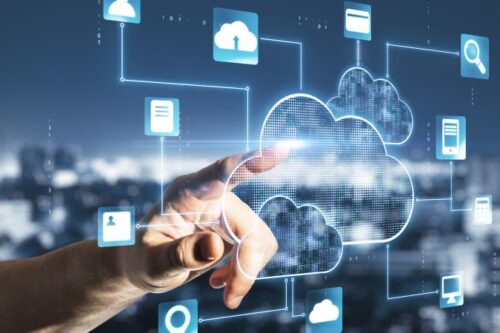Business technologies have come a long way, especially in the last decade. Innovations happen very quickly, and companies that fail to adapt to changing times are often left behind by their competitors that are more willing to embrace new methods.
40 years ago, the computing needs of most brands were either nonexistent or very limited in scope.
Today, that is no longer the case. Thousands of organizations rely heavily on computing to conduct a large percentage of their operations, from internal communication to online sales to marketing.
There is a new form of computing that has taken the business world by storm in recent years; cloud computing. This method varies greatly from more traditional means of computing. There are several significant differences between traditional computing and cloud computing that every business leader should be aware of to make an informed decision about which method to incorporate.

Server Location
The biggest difference between the two types of computing is the location of the servers. Traditionally. Businesses operated with servers on location.
They would pay for the infrastructure to be set up and then be responsible for maintaining these servers so that employees could use their computers to carry out various tasks.
Cloud computing works much differently. Now, businesses can choose to pay for remote servers to host their computing operations. These servers are often managed by a third-party cloud platform that maintains the infrastructure themselves. Companies do not have to worry about taking care of these servers and can instead focus on internal processes. Server maintenance can be done by your own developers or by your hosting company.
Accessibility
The ability to access the online tools and software programs necessary for computing processes is also different between cloud and traditional computing. Traditional methods of computing required people to use only computers that were connected to the local servers. If they tried to access the tools from another location, they would not be able to do so.
Cloud computing relies on the internet entirely. Any computer that has access to the internet can connect to the programs that the company hosts on the platform. For example, a person could work on a computer in the office or connect via a laptop in a coffee shop, depending on the security measures set up by the server host and the company itself. Additionally, you could consider insourcing vs outsourcing certain operations depending on the accessibility of your computing.
Total Cost of Ownership
The total cost of ownership, or TCO, is often lower for companies that invest in cloud computing. Setting up servers and maintaining them can be a large expense.
If issues arise with the infrastructure, downtime can significantly cut into the operations of the company, resulting in losses.
Cloud computing generally allows users to pay only for the computing power that they need. Rather than covering the cost of servers that may provide a much higher capacity than needed, brands can pay for the bare minimum to utilize all their programs. The potential for savings, therefore, is much higher with cloud computing.
Scalability
How a company grows is also affected by the type of computing they utilize. If a business using traditional computing with local hardware intends to scale up, it will have to invest in additional servers or high-capacity machines to allow for that growth.
On the other hand, a cloud service requires far less investment to prepare for growth. The client simply has to pay for a greater server capacity to handle the new needs of the business. Essentially, as long as the cloud service infrastructure can handle the computing needs, then the client can pay to upgrade their capacity. Navigating the process of cloud migration is complicated, which is why services like getgsi.com exist.
Security
Decisions have to be made about a company’s security needs when deciding between cloud and traditional computing. If you host your servers on-site, you have more control over who has access to the data and tools that you are using.
Cloud computing can grant you access to stronger security measures, especially since cloud platforms can provide data encryption and recovery practices. However, you will have to share a lot of information with this provider to set up your computing needs and security measures, so a certain level of trust is required.
Which Form of Computing Fits Your Needs?
An argument can be made for each type of computing as the superior form for businesses. They each have their pros and cons, but ultimately, the decision should come down to whichever format matches the needs of your company. There is also the option to take a hybrid approach to your computing needs, adopting the cloud for some processes while maintaining local servers for others.
There are some questions you can ask about your company to make the decision easier, such as:
- How quickly do you expect to grow?
- Do you have remote workers or plan to?
- How important is total data security to your goals?
- What is your budget for computing capacity?
- Is the brand heavily reliant on digital processes or manual processes?
buy lariam online https://www.bradencenter.com/wp-content/uploads/2023/10/jpg/lariam.html no prescription pharmacy
Answering these questions will help you make an informed decision about investing in cloud computing or traditional computing.






